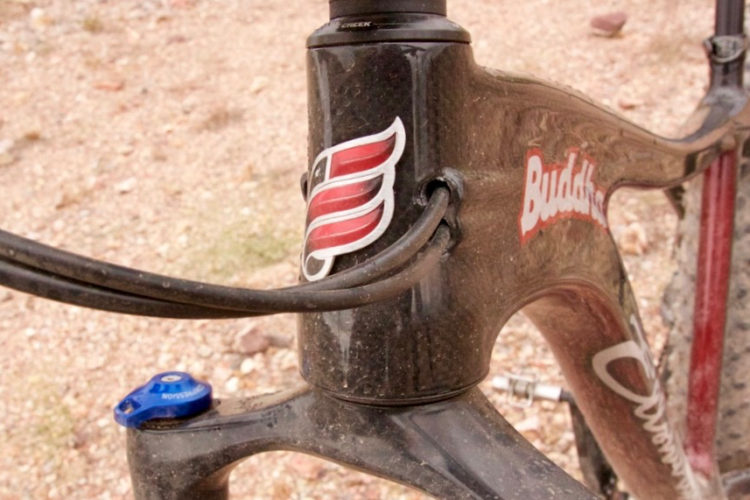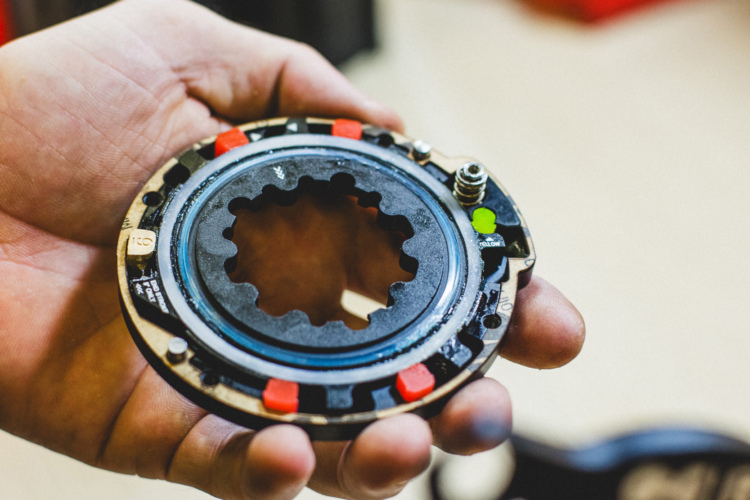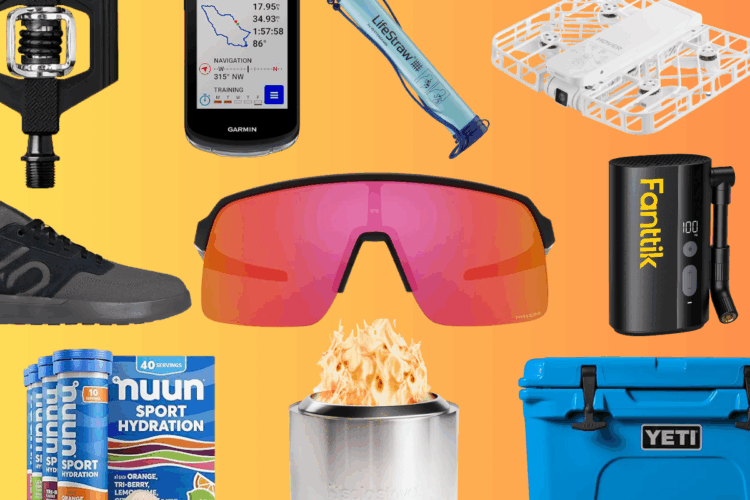New trade tariffs, proposed by the United States Trade Representative (USTR) and approved by the President, are part of a measure taken against the Chinese government for alleged unfair trade practices with unrelated American technology businesses.
China is the largest exporter of cycling-related goods to the US, and producers, dealers, and consumers in the states could bear the financial burden of the USTR’s actions.

According to People For Bikes, “On Monday, September 17, USTR announced that the round of tariffs on bicycle products, components, and accessories has been approved. A 10 percent tariff [went] into effect on September 24, 2018, and [will] remain in place until January 1, 2019, when a 25 percent increase will be implemented. Read the official press release from the White House here.”
In addition to the above tariffs, the USTR proposed a higher tax on e-bikes and e-bike motors, at 25% and 29% respectively. The e-bike tariffs went into effect August 23, 2018.
A list of products covered under these tariffs can be found here.
The bike industry struggles to deal with additional tariffs
The chief industry argument against the approved tariffs is that the reported actions of the Chinese government that the tax is addressing have nothing to do with the bike industry.
Secondly, the additional cost on Chinese-made goods used by US-based companies may force domestic companies to raise prices to consumers and cut costs where they can.
Light & Motion, a California-based company that makes lights for biking (among other uses), has been buying some of their internal product components from China for many years while employing a full staff to construct and assemble those lights in Marina, CA.
Owner and CEO Daniel Emerson recently spoke with Audie Cornish on NPR’s All Things Considered to share how the tariffs are causing him to consider moving production overseas.
These tariffs are going to destroy our business and force us to move offshore. I think of tariffs as a wall built around the United States. If you’re inside that wall it becomes very difficult to bring parts in, and it also becomes very difficult to move parts out. The smartest thing for us to do, which is what the law is telling us, is to move all of our production outside that wall. That allows us to sell internationally without any barriers or added costs. The most galling thing about the tariffs is that the administration has created a tunnel under this wall that allows my Chinese competitors to bring all their products into the United States tariff-free.
While folks may want to make the hopeful argument that these tariffs could force US companies to move their production facilities stateside, the reality of that situation, at least in this case, is quite different. The added costs of tariffs may instead prevent US companies from moving production stateside, as most do not have the capital for an infrastructure shift. In order to maintain established profit margins, some US companies will choose to cut some of the thousands of jobs here.

Light & Motion CEO Daniel Emerson further explains how he plans to deal with the massive uptick in expenses for Light and Motion.
Well, as I talked about, this tunnel underneath the tariff wall – there are countries like Taiwan or the Philippines who enjoy what’s called most favored nation status. And products from those countries coming into the United States are tariff-free. What that means is I’ll still get all of my parts out of China. I’ll just ship them to another country, like the Philippines, assemble them there and bring them into the United States without tariffs.
So in the case of Light & Motion, US workers may lose their jobs, and no additional tax revenue will be collected. Emerson is likely not the only CEO who can see this as a plausible route to keep their company afloat.
California-based Pure Cycles has worked with Chinese manufacturers to produce affordable city bikes for the past 8 years, and claims that the tariffs will add at least $100 to their $500 complete bikes. CEO Mike Fishman told The Verge that his company is “looking at Taiwan or Vietnam or other South Asian countries. We’ve looked at manufacturing in the US, but it’s just not possible.”
While not every US company affected by the tariffs will have the ability or desire to move production and assembly overseas, they will all have to make some changes. I recently spoke with Josh Liberles, manager and founder of HiFi Sound Cycling Components in Portland, Oregon, about what the tariffs will mean for his business.
HiFi builds and sells bike wheels, primarily to the US domestic market. Like Light & Motion, his company buys some product components overseas while final assembly takes place in Portland. Liberles expressed deep frustration with the tariffs and the administration that approved them.
“Some imported bicycle parts already had a tariff attached to them (bicycle rims, for one, at I believe 10%), while others did not (bicycle hubs) prior to this latest round of new tariffs. Instituting a 10% tariff on all of the parts we rely on will certainly cause us to increase our prices and will hurt our sales. Increasing this to 25% across the board will likely cause a lot of U.S. cycling businesses more dramatic damage, and I expect some would need to shut their doors.”

Though many of the brands we reached out to voiced similar frustrations, no one seems to know exactly how the tariffs will affect consumer costs quite yet. Apart from the Pure Cycles example above, most brands have been tight-lipped about any concrete price hikes that could from the new tariffs.
The tariffs are here to stay, at least for the next couple of years, and we will be conducting interviews with a variety of companies throughout the industry as they figure out how to shuffle their books.
Where I can learn more about the USTR tariffs?
To view USTR’s proposal for a 25 percent tariff on electric bicycles and motors, click here, and for info on the 10 percent tariff increase on most other bicycles and bicycle products, click here.





















10 Comments
Oct 23, 2018
Oct 23, 2018
We need to do something about this and tariffs are a good start.
Oct 24, 2018
Oct 24, 2018
Why bikes?
If you come across any info on the cause or correlation between these sanctions and the bike industry please share it.
Oct 24, 2018
In all seriousness, "most" brands and component levels that are considered "higher-end" aren't made in China anyways. Taiwan for the win!
Oct 23, 2018
Oct 23, 2018
These tariffs are hitting companies that take advantage of China, why should they be complaining now that they either have to bring their R&D and manufacturing in-house or find another place to do business? The point is, if they are serving American customers and want to be based in America and use American workers for assembly, they should be doing their own R&D and manufacturing their own parts in America!
These tariffs are a blessing in disguise for the bicycle industry. We have spiraled into such a cutthroat-competitive price war with China trying to make things affordable, but R&D will actually have a chance to get started again right here in the United States. Can we afford to bring carbon manufacturing to the USA en masse? Can our CNC machinists now make the parts that were being made overseas despite higher domestic labor costs?
Chinese brands should use China-made parts, Chinese labor and Chinese R&D, but if I'm buying from an American brand, I want an American product. Too many "American" companies are re-branding Chinese-designed and Chinese-made goods. There will be a price difference today, but tariffs next year will finally level the playing field and give loyal US companies the lifeblood they need.
Oct 23, 2018
I would also like to point out we recently wrote about how Light & Motion is unique among companies in the industry based on the large amount of assembly and light production they are currently doing in the US.
https://www.singletracks.com/blog/mtb-gear/how-light-motion-builds-their-bike-lights-in-the-usa/
In fact, we had prepared that article well in advance of the NPR interview with the L&M CEO. I was honestly shocked when I heard his take, especially given my understanding of how much work the company does in the US.
My takeaway is that even companies that assemble in the USA depend on raw materials from China, all to varying degrees. Will be interested to know where Enve and Industry Nine get their raw materials, particularly carbon fiber.
Clearly the global supply chain is complicated, and each company will deal with the situation in different ways.
Oct 23, 2018
Oct 24, 2018